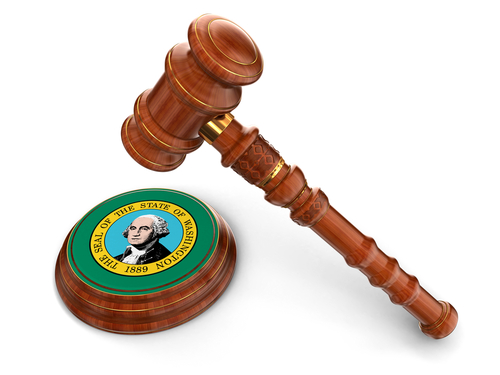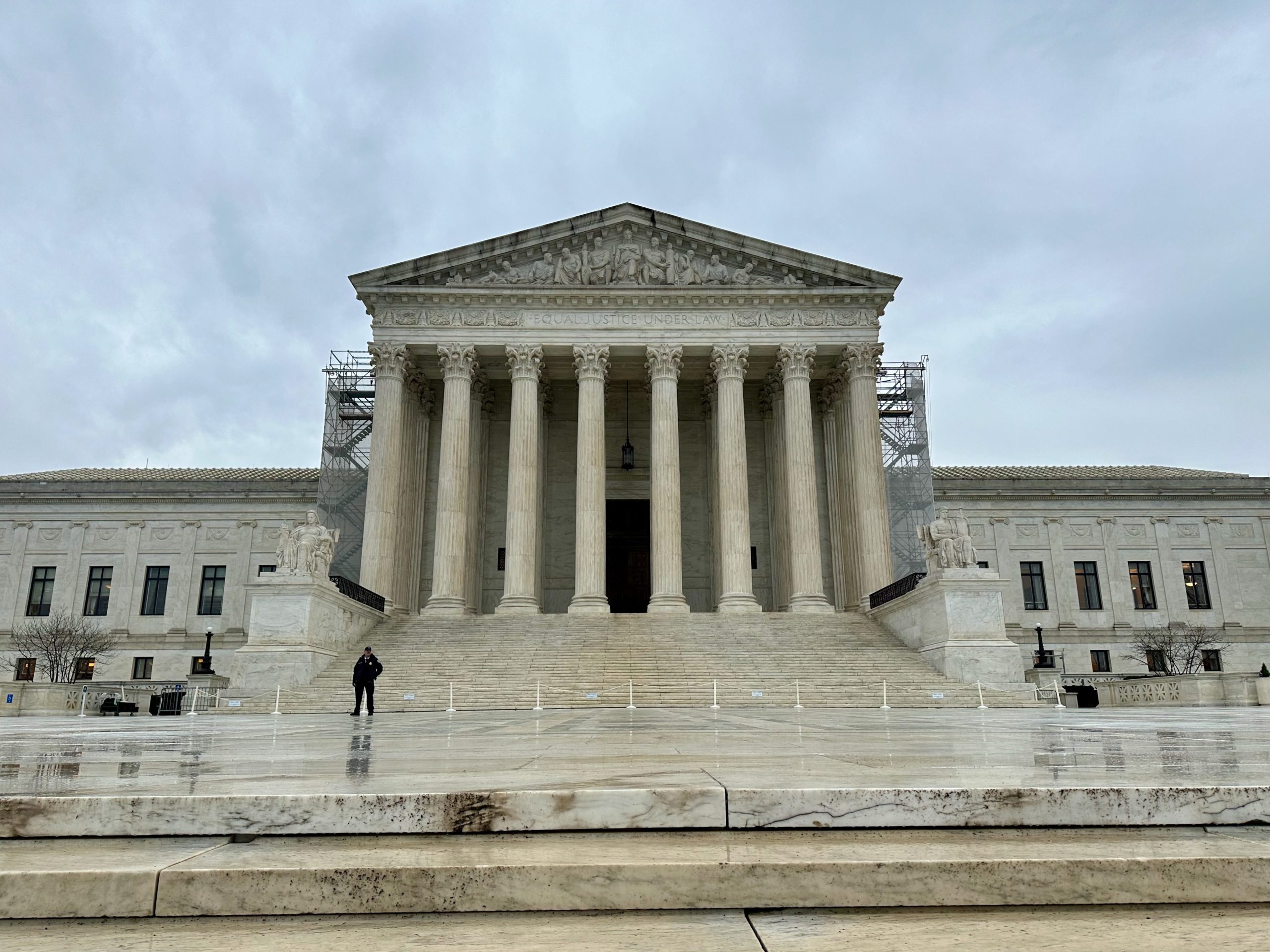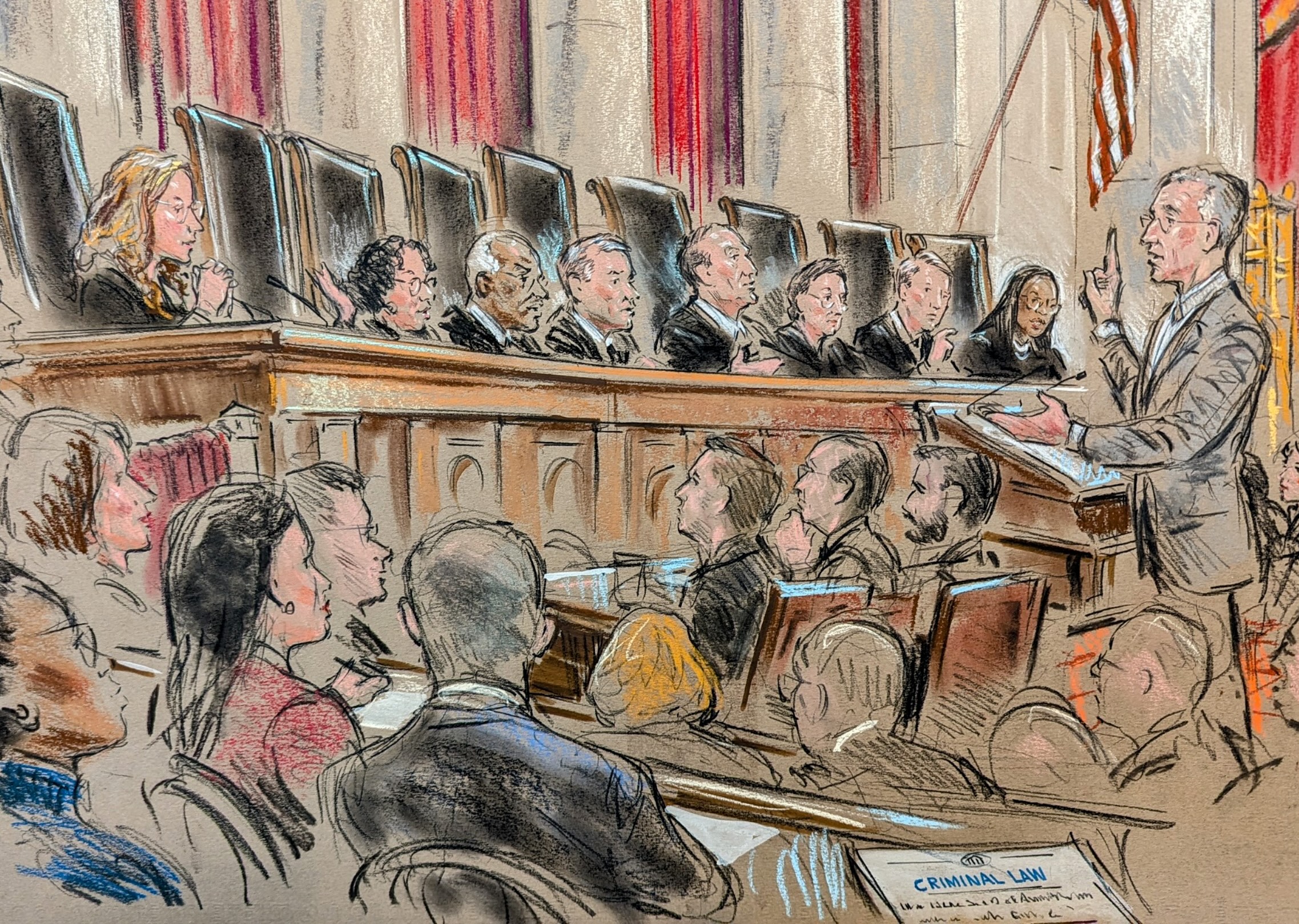Supreme Court preserves access to abortion pill
OPINION ANALYSIS
on Jun 13, 2024
at 11:13 am
The court ruled against a group of anti-abortion doctors suing the FDA in Food and Drug Administration v. Alliance for Hippocratic Medicine on Thursday. (Timothy Neesam via Flickr)
The Supreme Court on Thursday threw out a lawsuit seeking to roll back access to mifepristone, one of the two drugs used in medication abortions. In a unanimous decision, the court ruled that the doctors and medical groups challenging the expansion of access to the drug by the Food and Drug Administration in 2016 and 2021 lack a legal right to sue, known as standing.
Writing for the court, Justice Brett Kavanaugh acknowledged what he characterized as the challengers’ “sincere legal, moral, ideological, and policy objections” to elective abortion “by others” and to FDA’s relaxed regulation of mifepristone. But the challengers had not shown that they would be harmed by the FDA’s mifepristone policies, he explained, and under the Constitution, merely objecting to abortion and the FDA’s policies are not enough to bring a case in federal court. The proper place to voice those objections, he suggested, is in the political or regulatory arena.
Thursday’s ruling means that mifepristone will continue to remain widely available in the United States, where it is used in over 60% of abortions by health care providers. The decision, however, does not necessarily foreclose another challenge to the FDA’s actions. Three states with Republican attorneys general – Idaho, Missouri, and Kansas – joined the dispute in the lower court earlier this year.
The decision came a little less than two years after the Supreme Court’s 2022 decision in Dobbs v. Jackson Women’s Health Organization, in which the court eliminated the constitutional right to abortion. In the wake of that decision, 21 states either banned or significantly limited access to abortion.
A few months after the court’s decision in Dobbs, the challengers in this case – several individual doctors who are opposed to abortion on religious or moral grounds, as well as medical groups whose members are opposed to abortion – went to federal court in Texas. Arguing that mifepristone is unsafe and that the process that the FDA used to approve the drug was flawed, they asked U.S. District Judge Matthew Kacsmaryk to rescind both the FDA’s initial approval of the drug in 2000 and its expansion of access to the drug in 2016 and 2021.
The FDA, as well as several leading medical groups like the American College of Obstetricians and Gynecologists and the American Medical Association, pointed to extensive evidence that mifepristone is safe and effective. But citing “legitimate safety concerns,” Kacsmaryk suspended the FDA’s approval of the drug and the agency’s later changes to the conditions on the use of the drug, which included allowing the drug to be used through the 10th week of pregnancy, allowing health-care providers who are not physicians to prescribe the drug, and permitting it to be prescribed without an in-person visit.
The FDA and Danco, which manufactures mifepristone, appealed to the U.S. Court of Appeals for the 5th Circuit, which ruled that the challengers had filed their lawsuit seeking to invalidate the FDA’s initial approval of the drug too late. But it upheld the part of Kacsmaryk’s ruling that rolled back the expanded access to mifepristone.
The Supreme Court put the 5th Circuit’s ruling on hold, ensuring continued access to the drug, and in December it agreed to weigh in. On Thursday, it reversed the lower court’s ruling and sent the case back to the lower courts.
In a 25-page opinion, Kavanaugh rejected the challengers’ contention that the FDA’s relaxed regulation of the drug injures them because, although they are not required to prescribe mifepristone themselves, they could be required to provide emergency treatment to women who have obtained the drug from other health-care providers and then suffer complications. Because federal laws “definitively protect doctors from being required to perform abortions or to provide other treatment that violates their consciences,” Kavanaugh emphasized, the challengers cannot show that the FDA’s actions will harm them.
Kavanaugh similarly rebuffed the challengers’ contention that having to treat patients who have suffered complications will injure them in other respects, such as diverting resources and potentially increasing their insurance costs. The link between the FDA’s actions and those potential injuries, Kavanaugh said, “is too speculative or otherwise attenuated to establish standing.”
Finally, Kavanaugh dismissed any suggestion that the challengers “must have standing because if these plaintiffs do not have standing, then it may be that no one would have standing to challenge FDA’s 2016 and 2021 actions. For starters,” Kavanaugh observed, “it is not clear that no one else would have standing to challenge FDA’s relaxed regulation of mifepristone.” But even if that were the case, he continued, the prospect that no one would otherwise have standing is not a reason to conclude that a particular set of challengers must have standing. “Rather,” Kavanaugh concluded, “some issues may be left to the political and democratic processes: The Framers of the Constitution did not ‘set up something in the nature of an Athenian democracy or a New England town meeting to oversee the conduct of the National Government by means of lawsuits in federal courts.’”
This article was originally published at Howe on the Court.






